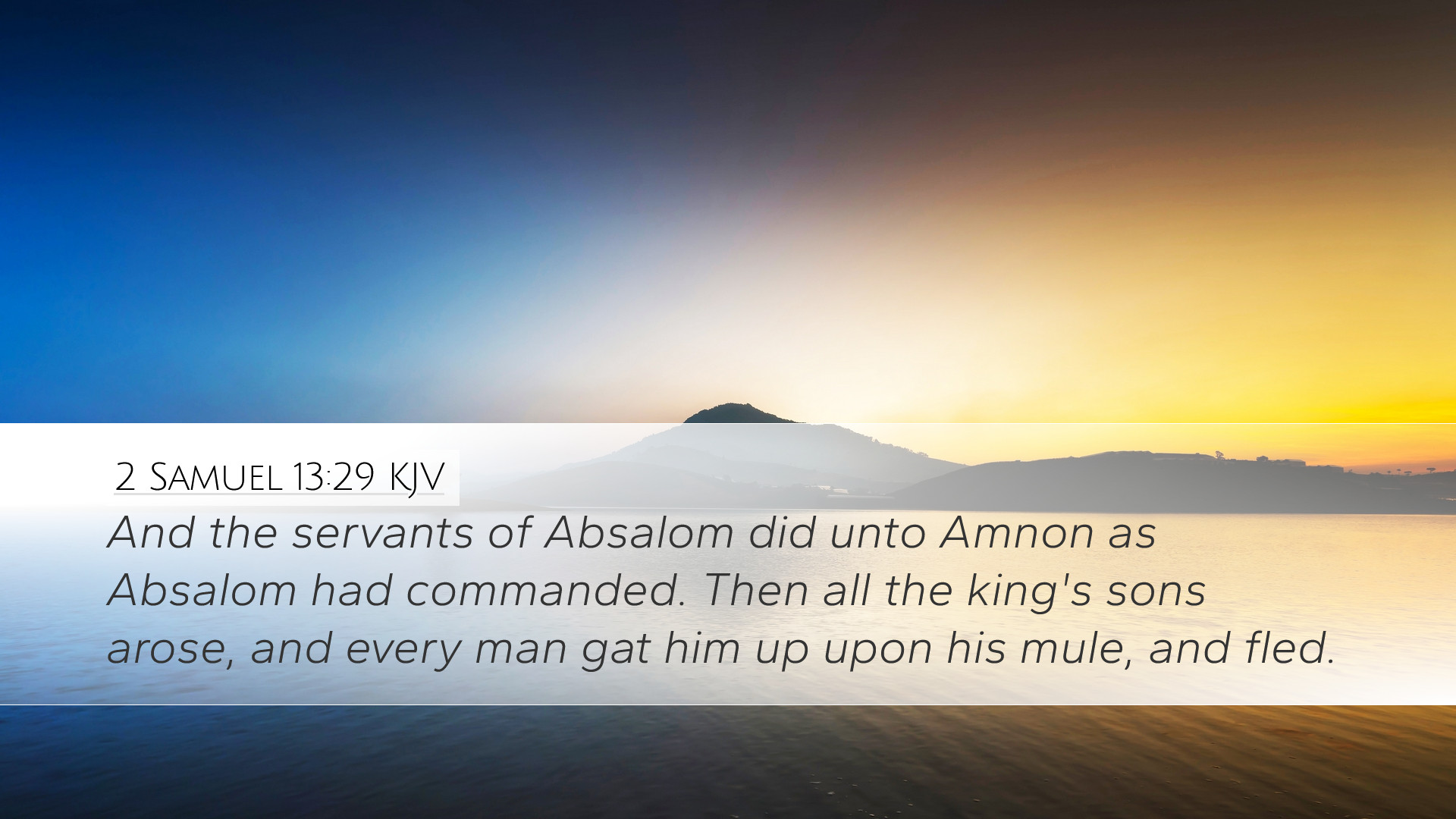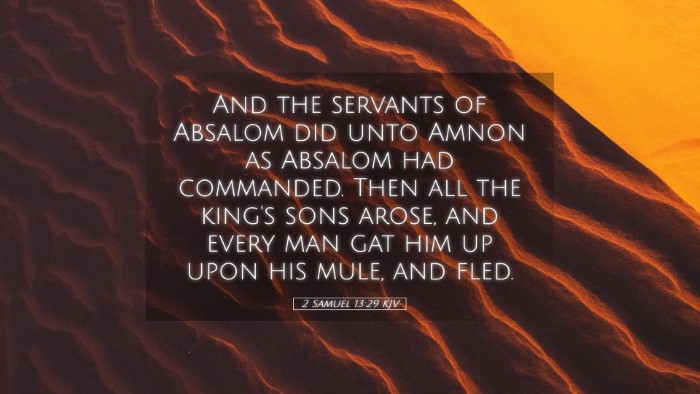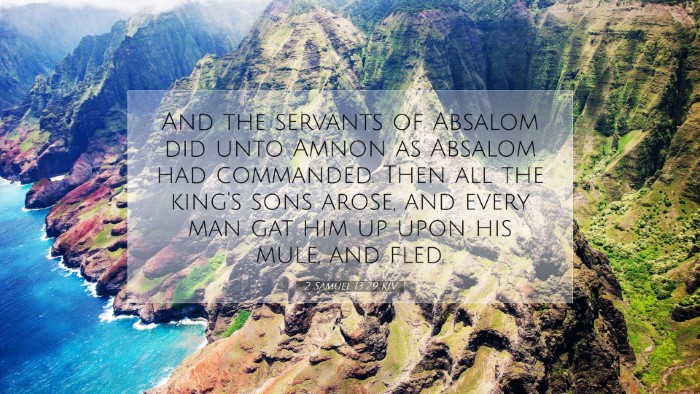Commentary on 2 Samuel 13:29
Verse: 2 Samuel 13:29 - “And the servants of Absalom did unto Amnon as Absalom had commanded. Then all the king's sons arose, and every man gat him up upon his mule, and fled.”
Introduction
This verse is instrumental in the narrative concerning Absalom's revenge and the complex dynamics within David's family. The events leading to this passage unfold the themes of betrayal, fulfillment of prophetic judgments, and the tragic consequences borne from personal sins. Each commentary on this verse offers unique insights grounded in biblical theology, historical context, and moral reflection.
Historicity and Context
In this passage, Absalom takes revenge for the rape of his sister Tamar at the hands of their half-brother Amnon. The act of vengeance is rooted not only in personal grievance but also reflects broader themes of familial discord within the house of David. Absalom's meticulous planning and execution of this act illustrate significant socio-political and ethical implications inherent in their family structure.
Matthew Henry's Insight
Henry elucidates that the verse marks the culmination of Absalom's long-simmering desire for retribution. He notes that ambition, coupled with deep-seated feelings of wrong, often leads to disastrous outcomes. The command to kill Amnon reveals the brutal reality of family conflict, depicting how unresolved issues can fester and culminate in violence. Henry emphasizes the idea that discretion is often lacking in human judgment, noting how quickly emotions can eclipse wisdom.
Albert Barnes' Interpretation
Barnes provides a detailed exploration of the implications of Absalom's actions. He remarks that Absalom's plotting against Amnon highlights the underlying tensions in David's household. The verse illustrates the fulfillment of Nathan's prophecy regarding the internal strife that would plague David's reign as a consequence of his sin with Bathsheba. Barnes points out the swift departure of the king's sons, indicating their immediate fear of retribution and the breakdown of familial bonds due to shame and rebellion.
Adam Clarke's Commentary
Clarke offers a theological reflection on the divine judgment present in this scenario. He suggests that the event showcases God's hand in the affairs of men, particularly as it reflects the moral decay that began with David's own transgression. Clarke emphasizes the significance of the mode of flight (on mules), suggesting it symbolizes a hasty retreat from sin's consequences and the chaos within David's lineage. Each action taken by Absalom serves as a reminder of the fragility of peace when moral integrity is compromised.
Analysis of Key Themes
- Betrayal and Revenge: The intricacies of familial loyalty versus justice are palpably felt in this confrontation. The act of killing Amnon serves as a stark reminder of the lengths to which a wounded heart will go to rectify perceived injustices.
- Divine Justice: This incident serves as a pivotal point illustrating how the consequences of sin ripple through generations, reminiscent of the scriptural principle that we reap what we sow.
- Disunity and Tragedy: The swift departure of all the king's sons symbolizes the fracture in David’s family, portraying the destructive nature of revenge that ultimately leads to familial disintegration.
Practical Applications
For pastors, students, and theologians, the insights gleaned from this verse are profound. The teachings extend beyond the historical narrative to contemporary reflections on sin, justice, and mercy:
- The Call for Reconciliation: Understanding how unresolved conflicts can escalate into violence calls for proactive measures of reconciliation within congregations and families.
- Wisdom in Leadership: Leaders should be vigilant of the seeds of discord that can blossom into significant challenges if left unattended.
- Seeking Divine Mercy: The narrative encourages believers to seek God's mercy in their lives and understand the broader implications of sinfulness.
Conclusion
2 Samuel 13:29 serves not only as a historical recount of a tragic family drama but also as a poignant reminder of the consequences of sin and revenge. The commentaries provided by Matthew Henry, Albert Barnes, and Adam Clarke collectively enhance our understanding of the text, revealing rich theological and moral insights that resonate deeply with readers today.


